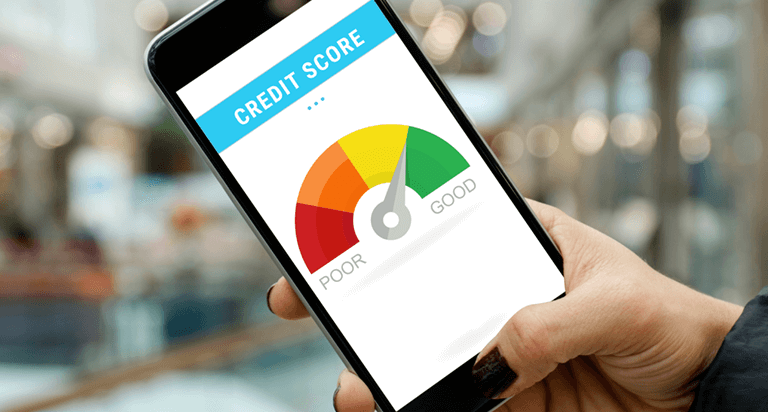What to Expect When Asking for a Credit Limit Increase
Highlights:
- A credit limit is the highest amount that a lender will allow you to borrow from a single line of revolving credit.
- Receiving a credit limit increase can lower your credit utilization rate, which could positively impact your credit scores.
- If approved for a credit limit increase, it may take several weeks for the new amount to appear on your credit reports.
If you regularly use a credit card, you may have wondered what it would take for your lender to increase your credit limit. In many cases, the answer is simple — all you have to do is ask.
Under the right circumstances, a credit limit increase could benefit your credit scores. But how does the process of raising your credit limit work? And are you a good candidate for additional credit? Here’s what to expect when asking for a credit limit increase.
What is a credit limit?
A credit limit is the highest amount that a lender will allow you to borrow from a single revolving credit account. Common examples include credit cards and home equity lines of credit (HELOCs). Installment credit accounts, such as mortgages, auto and other types of loans, do not typically have a credit limit. Instead, borrowers are approved for a fixed sum of money that they receive in full and then repay over time.
Lenders base your credit limit on multiple factors, including your credit scores, the information on your credit reports, your existing debt and your income. Risky borrowers — typically those with lower credit scores, smaller incomes and higher levels of debt — will generally be offered lower credit limits. Borrowers with higher credit scores, larger incomes and lower debt loads are more likely to be offered higher credit limits.
Because your lender sets your credit limit, they can adjust it up or down in response to changes in your financial profile. On the plus side, some lenders even offer automatic increases after borrowers display positive financial behavior.
However, be aware that exceeding your credit limit can cost you. In many cases, transactions that exceed your credit card’s spending limit will be declined at check out. However if a charge does go through, you’ll likely face what’s known as an over-the-limit fee for the expense. The size of the fee will vary based on your credit card issuer.
When should you try to increase your credit limit?
There are many reasons a person might consider asking for a credit limit increase, but it’s often to gain access to more credit than they were granted originally. However, it’s important to seek out additional credit only if you have the means to repay what you plan to borrow.
You may be a good candidate for a credit limit increase if you’ve recently received a raise or changed to a job with a higher salary. You might also qualify if you have a history of making full, on-time payments to your account, as this sort of behavior demonstrates that you are a responsible borrower. Additionally, you’re more likely to be approved if your credit scores have recently improved, especially if they are higher than 670.
Why are credit utilization rates important?
Is there any reason you would want to increase your limit if you don’t need access to more credit right now? The answer may be yes, and it has to do with something called your credit utilization rate. Generally expressed as a percentage, your credit utilization rate represents the amount of revolving credit you’re using divided by the total credit available to you. A rate higher than 30% can damage your credit scores.
So, if you’re looking to improve your credit scores in advance of a big financial commitment — applying for a mortgage, for instance — then decreasing your credit utilization rate can have a major impact. To that end, you can (and should) try to pay down the debt you already owe, but you can also ask for a credit limit increase. By raising the total amount of credit you have access to, you’ll decrease your credit utilization rate and may see an increase in your credit scores.
Does requesting a credit limit increase hurt your credit scores?
In the long term, a credit limit increase may improve your credit scores, provided you make regular, on-time payments. In the short term, however, asking for a credit limit increase may temporarily decrease your scores.
When you ask for a credit limit increase, your lender may perform a full credit check — also called a hard inquiry — to help evaluate your eligibility. This process can have a minor, negative effect on your credit scores. Although a request for a credit limit increase will often result in a hard inquiry, this isn't always the case. Be sure to ask your card issuer about any potential effects on your credit scores.
How can you increase your credit limit?
The process for requesting a credit limit increase is simple. First, evaluate your current credit scores, credit reports, income and other financial details to gauge whether you are likely to be approved. Has your income increased significantly? Have your credit scores improved recently? Can you quickly pay down any debt you owe?
Next, contact your lender and ask for a credit limit increase. Applying online is a good option if you think you’re a good candidate with a high chance of approval. If you’re not sure, it may be beneficial for you to call and speak directly to your lender.
Prepare for a full credit check, but make sure to come with information about your employment, income and rent/mortgage payments. Some lenders allow you to request a specific credit limit, so be sure to have a number in mind. You’ll usually find out on the spot whether you’ve been approved.
How long does it take to increase your credit limit?
Lenders may have specific requirements regarding when you can ask for a higher credit limit. Typically, credit accounts that have been open for more than three months are eligible for an increase. Applications are commonly restricted to one every six months; however, the frequency and other parameters will vary by lender.
If approved for a credit limit increase, it may take several weeks for the new amount to appear on your credit reports.
If you’re denied, don’t despair — a credit limit increase may still be in your future. There’ll be a waiting period before you can reapply, but you can use that time to raise your credit scores. If you’re eventually approved, remember not to abuse the additional credit. Responsible financial habits increase your credit scores and make you a better borrower in the eyes of future lenders.
If you’re considering a credit limit increase, it’s a good idea to review your credit reports and credit scores before applying.



